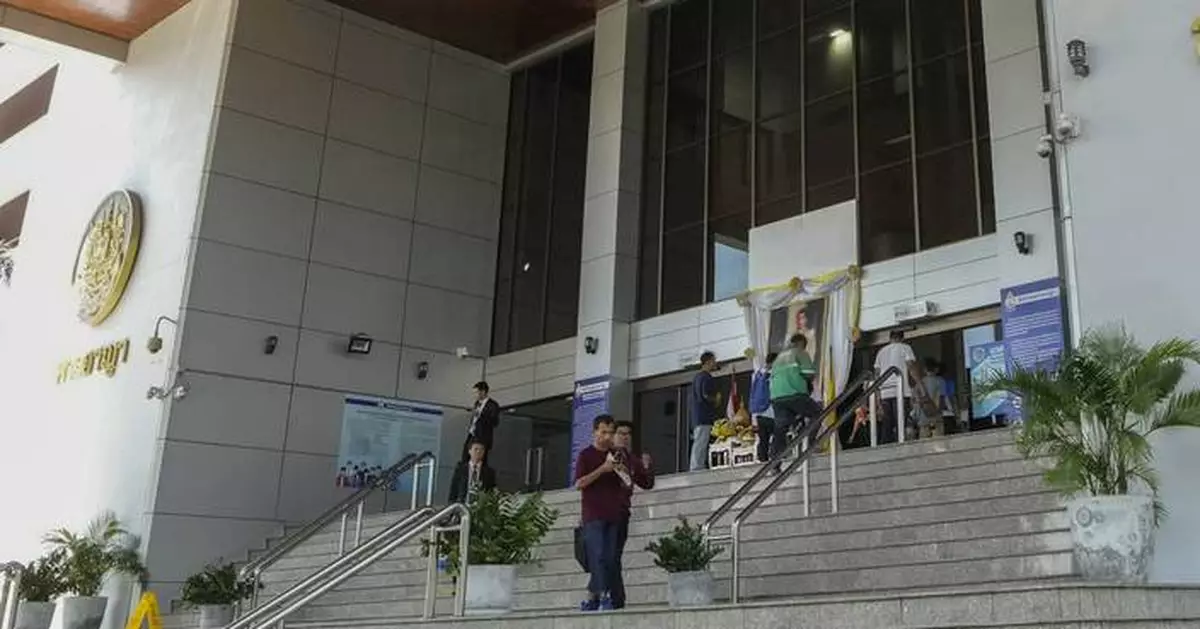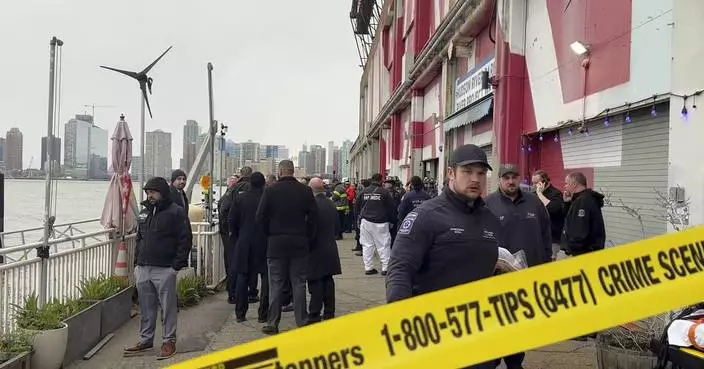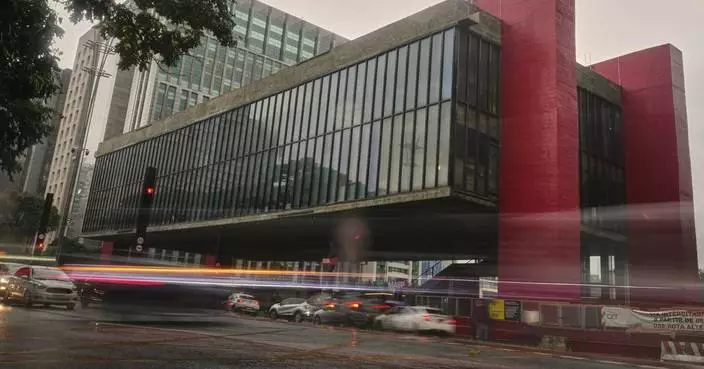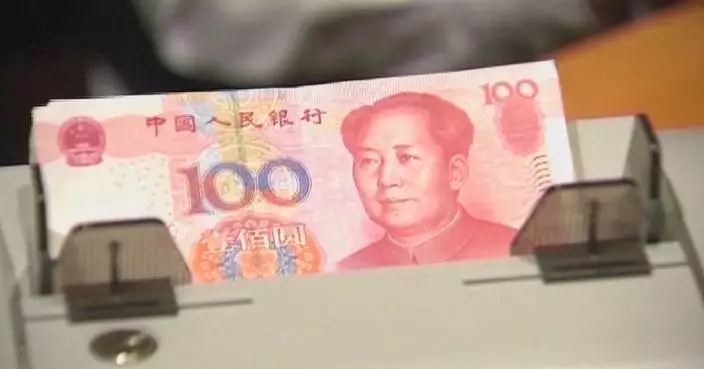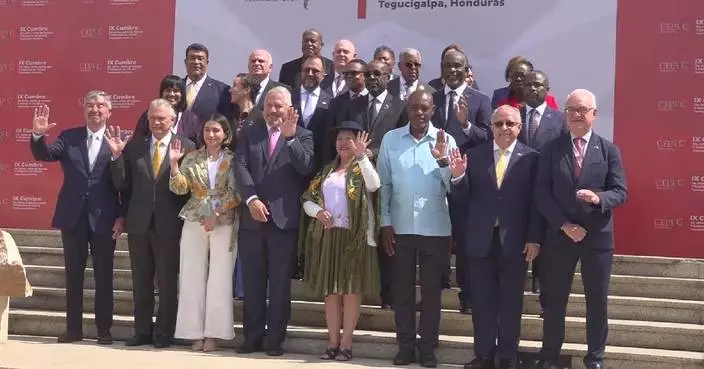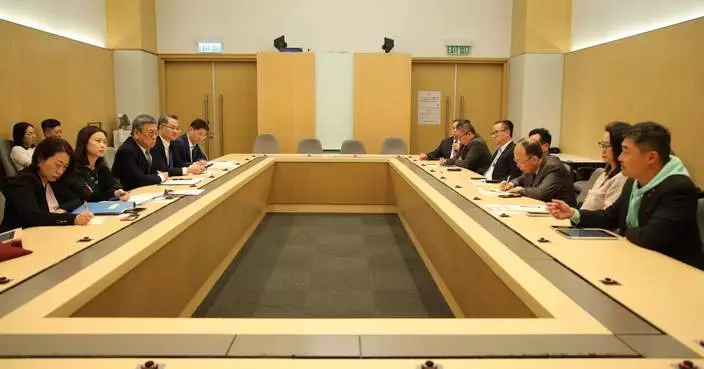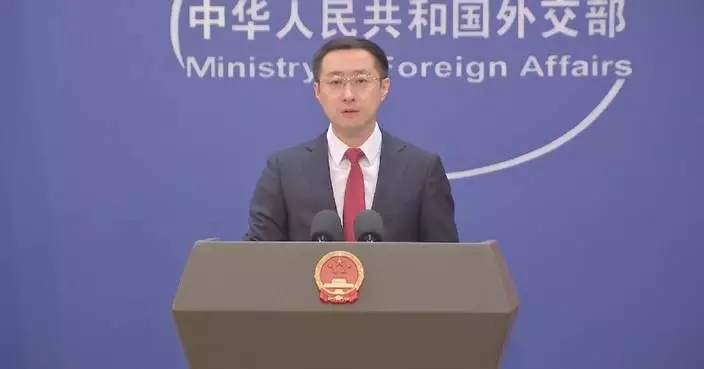BANGKOK (AP) — A Thai court on Monday ordered the extradition of a 32-year-old Vietnamese activist detained in Bangkok, despite fears among rights groups he could be at risk if sent home.
The Bangkok Criminal Court granted Vietnam's request for the extradition of Y Quynh Bdap, who was detained in the Thai capital in June.
The co-founder of the Montagnards Stand for Justice group was convicted in absentia in Vietnam in January of terrorism and sentenced to 10 years in prison on allegations that he was involved in organizing anti-government riots in Vietnam’s central highland province of Dak Lak last June.
Bdap's attorney, Nadthasiri Bergman, said she was already working on an appeal, which has to be filed within the next 30 days. Regardless of the outcome, the Thai government could also decide diplomatically not to enforce the extradition order as well.
“The prime minister has the right, if they want to protect human rights, they can do it," she told reporters outside the court. “If he goes back to his country there will be a threat to his life, so the government should respect that evidence.”
Bdap has been seeking asylum in Canada and had a meeting with Canadian Embassy officials in Bangkok the day before he was taken into custody. Canadian officials have refused to comment on the case.
Bdap was in Thailand at the time of the Dak Lak riots at two district government offices in which nine people were killed, including four police officers and two government officials.
Overall, about 100 people have been tried for alleged involvement in the riots, and 53 have been convicted on terrorism charges.
Days after the verdicts, Vietnamese Foreign Ministry spokesperson Pham Thu Hang rejected criticism that Vietnam had used the trial as an opportunity to crack down on ethnic minorities.
Vietnam has long been criticized by rights groups and others for its treatment of the country’s Montagnard minority, a term loosely used to refer to many predominantly Christian ethnic groups that live in the central highlands and neighboring Cambodia.
Human Rights Watch has said many have been driven to seek asylum in Cambodia and Thailand as Vietnamese authorities have subjected their communities to intimidation, arbitrary arrests and mistreatment in custody.
“Y Quynh Bdap would be at real risk if returned to Vietnam,” said Bryony Lau, deputy Asia director for Human Rights Watch, at the time the activist was apprehended.
“Thai authorities should immediately release this prominent religious freedom advocate and refugee. Returning him to Vietnam would be a violation of Thailand’s obligations under Thai and international law,” Lau said.
Human Rights Watch has criticized Thailand for sending home dissidents from Cambodia, Vietnam, Laos and China to uncertain fates, in what it said in a recent report was a quid-pro-quo form of transnational repression, in which those countries sent home dissidents wanted by Thailand.
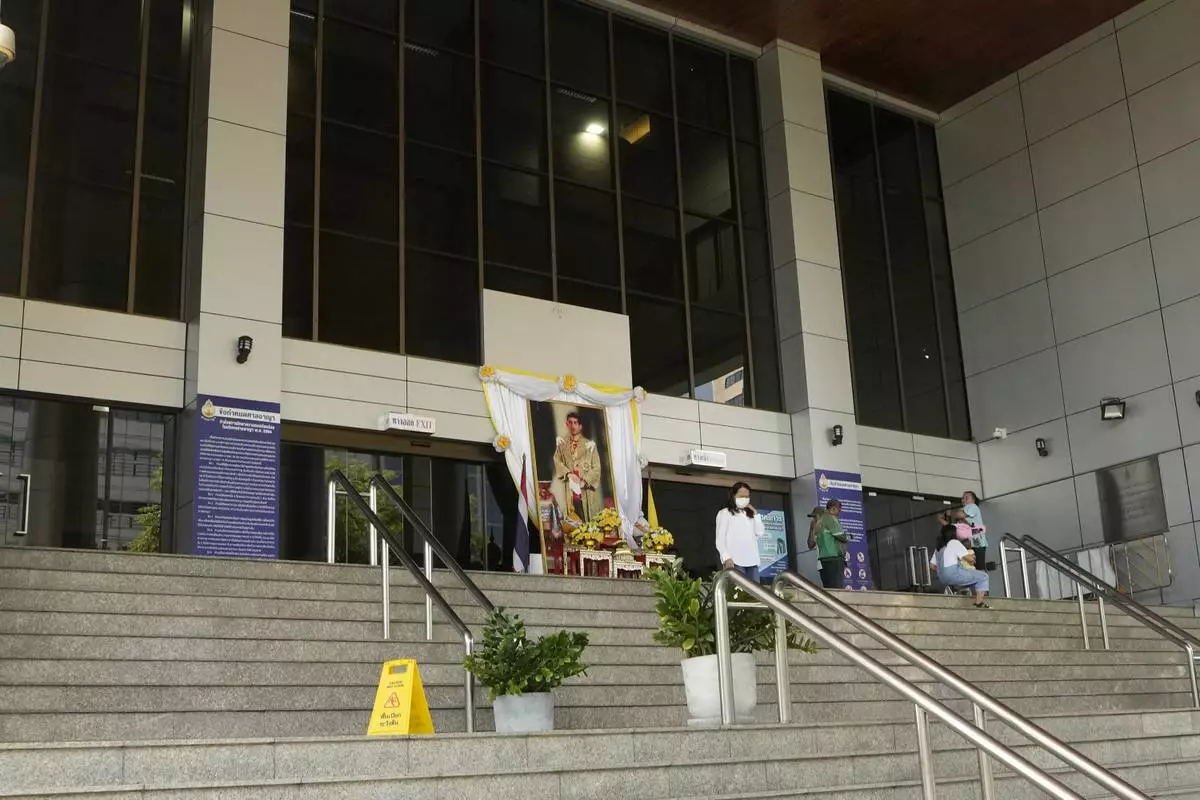
Peoples leave the Bangkok Criminal Court in Bangkok, Thailand, Monday, Sept. 30, 2024. (AP Photo/Sakchai Lalit)
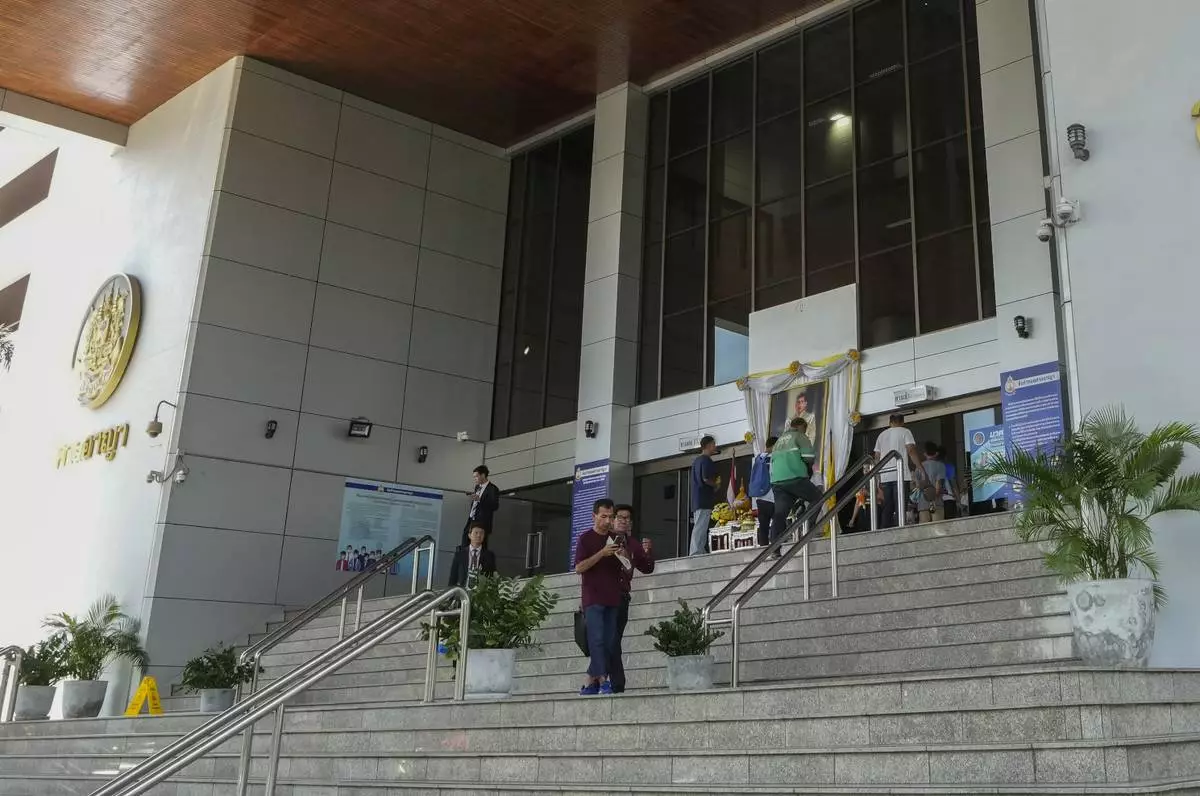
Peoples leave the Bangkok Criminal Court in Bangkok, Thailand, Monday, Sept. 30, 2024. (AP Photo/Sakchai Lalit)
BAD SCHANDAU, Germany (AP) — Germany's reputation for efficiency is taking a hit from crumbling concrete. Cracks and collapses are also a risk to its economy, Europe's biggest.
The European Union's most populous member is trying to turn around a problem with worn-out infrastructure — including about 4,000 bridges that need modernizing or replacing over the next decade. All too frequently, unexpected scares about the state of bridges cause short-notice closures that bring local gridlock. Occasionally, it is worse than that.
In Dresden, a bridge dating back to 1971 partially collapsed in the middle of the night in September due to corrosion. No one was hurt, but the collapse snarled traffic and temporarily blocked shipping on the Elbe River. The remains of the Carola bridge have yet to be removed.
The collapse prompted checks on similarly designed bridges — including one in Bad Schandau, a small town further up the Elbe near the Czech border. It was shut abruptly to all traffic in November as a precaution, leaving locals with a 20-kilometer (12 1/2-mile) trip to the nearest road crossing until it reopened on Thursday — albeit with a 7.5-ton weight limit.
“The closure of this bridge was an absolute catastrophe for people in Bad Schandau,” said Steffen Marx, a civil engineering professor who led ultimately successful stress tests on the bridge. “It's the classic gridlock ... this is the only crossing along nearly 50 kilometers (30 miles) of river.”
Even as the situation eases in Bad Schandau, Berliners are steaming over the abrupt closure last month of a bridge on a busy highway after a widening crack was detected. It will now be demolished quickly. The outage snarled traffic in a large section of the capital, forced the weeks-long closure of a commuter railway line and prompted the government to cough up 150 million euros ($164 million) for its urgent rebuilding.
“The Germans are very good engineers. You would think that everything works,” said Monika Schnitzer, the head of an independent panel of economic advisers to the government. “At the same time, the Germans are also very good at saving — and they saved for a very long time particularly on this infrastructure, on bridges.”
Germany's prospective new government has moved to address the issue before it even takes office. Last month, the would-be coalition under conservative leader Friedrich Merz pushed through parliament a 500 billion-euro ($551 billion) fund, financed by borrowing, to pour money into creaking infrastructure over the next 12 years. Politicians see that as part of efforts to restore the stagnant economy to growth.
It's not just bridges: There are also decrepit schools, and a national railway has begun thorough but disruptive overhauls of major routes after years of underinvestment. Complaints about frequent delays and breakdowns on the railway have become a national sport.
The coalition agreement presented Wednesday states that “functioning infrastructure is the foundation for our country's prosperity, social cohesion and sustainability. So Germany needs an infrastructure booster — that applies to hospitals and schools as well as bridges and railways.”
On the roads, it promises that money will be provided “to resolve the renovation backlog on bridges and tunnels in particular.”
The outgoing government says a large number of bridges were already modernized under a program under way since 2022. But much remains to be done.
“Now that there's money, a growth spurt could actually be generated very quickly,” Schnitzer said. “But what is really necessary for this is that the money is spent quickly. And for that, we need much faster planning and approval procedures than we had so far.”
She noted that Germany has proven it can speed up its planning bureaucracy, notably in building its first liquefied natural gas terminals within months after Russia launched its full-scale invasion of Ukraine in 2022 and subsequently cut off pipeline gas supplies to Germany.
Outgoing government spokesperson Steffen Hebestreit pointed this week to the availability of construction companies and machines as a hurdle to quick bridge repairs and said Germany is “at its capacity limit.”
Marx said the situation of Germany's infrastructure is “quite critical.”
“It isn’t so much because we don’t invest enough — that’s one reason,” he said. “But from my point of view, the main reason is that we don’t take enough care of things. That we just don’t maintain infrastructure and we do far too little cleaning, repairing, strengthening, all things we do in our private buildings.”
He added that the huge new infrastructure fund is necessary, but he's concerned the money will be put only into demolishing and rebuilding the worst bridges rather than ensuring that others never get into that state.
“You can't win political points with maintenance and preservation — it's boring and not really spectacular,” Marx said. “But it becomes spectacular when you neglect it.”
Geir Moulson in Berlin contributed to this report.

Passers-by and cars cross the Elbe bridge in Bad Schandau to mark the opening to traffic, in Dresden, Germany, Thursday April 10, 2025. (Sebastian Kahnert/dpa via AP)

Cars cross the Elbe bridge in Bad Schandau to mark the opening to traffic, in Dresden, Germany, Thursday April 10, 2025. (Sebastian Kahnert/dpa via AP)
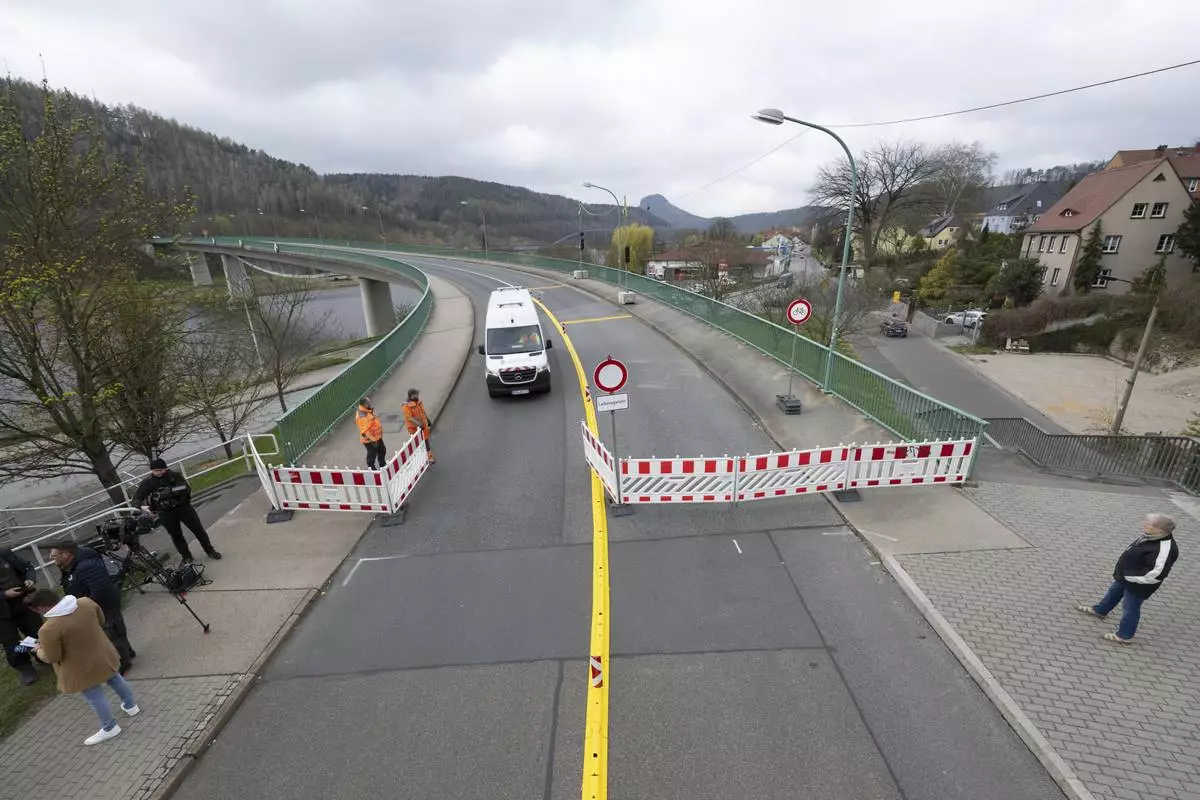
A traffic engineering vehicle crosses the Elbe bridge in Bad Schandau to mark the opening to traffic, in Dresden, Germany, Thursday April 10, 2025. (Sebastian Kahnert/dpa via AP)

Cars parked next to the closed Elbe bridge a few days before its inauguration, in Bad Schandau, Germany, Friday March 28, 2025. (Sebastian Kahnert/dpa via AP)
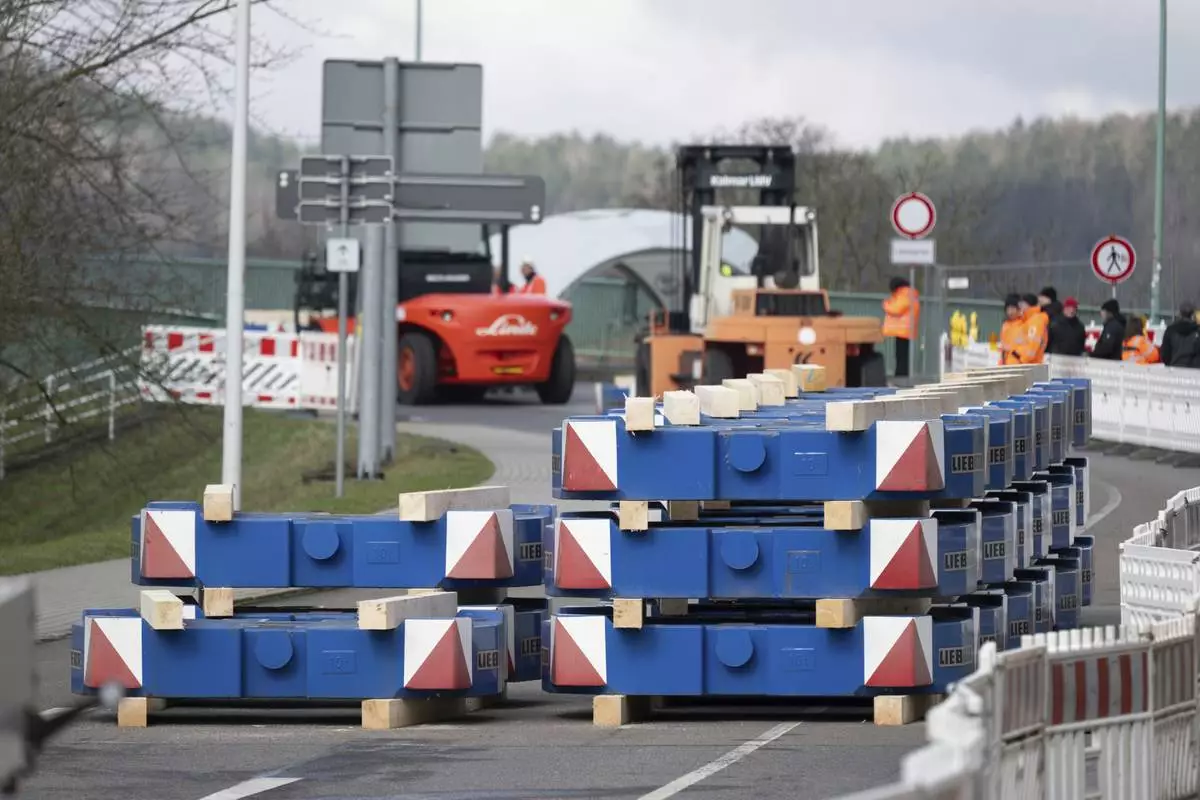
Weights are placed at the foot of the closed Elbe bridge as part of a load test, during a the three-day load test intended to show that the Elbe crossing can be reopened to traffic, in Bad Schandau, Germany, Tuesday April 1, 2025. (Sebastian Kahnert/dpa via AP)
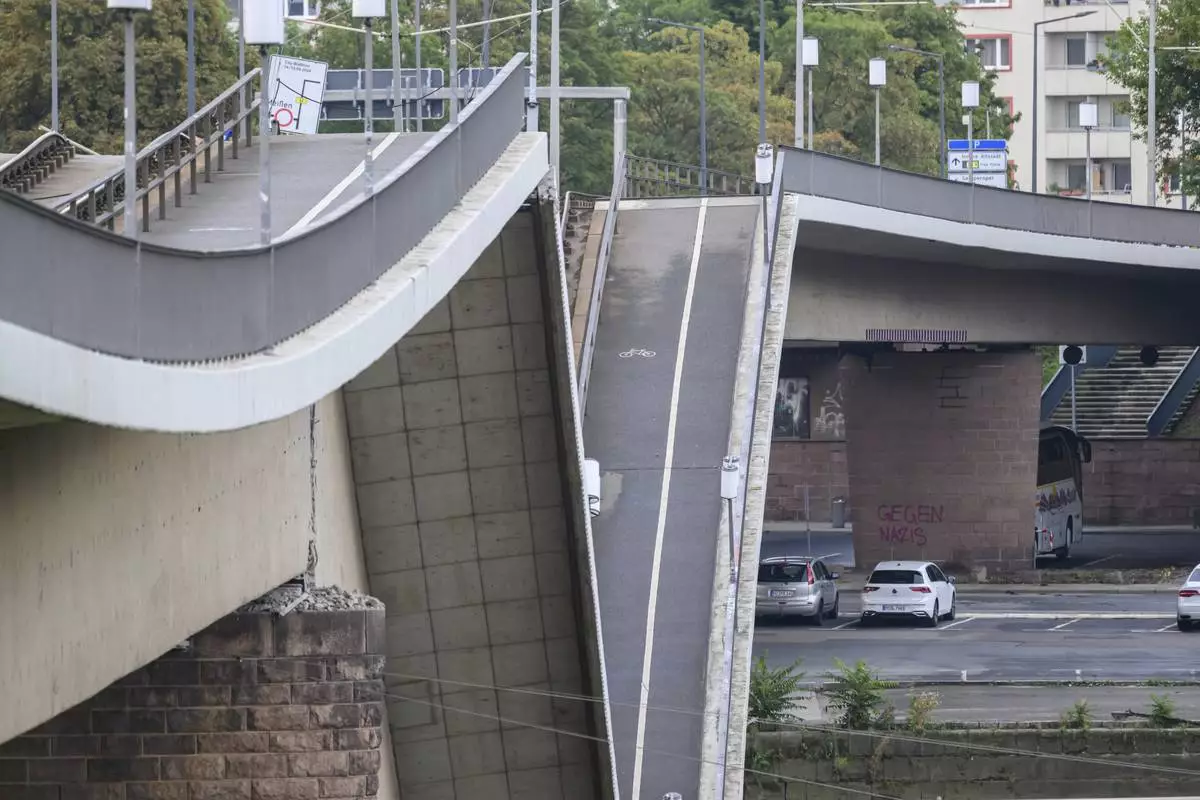
FILE - Parts of the Carola Bridge over the Elbe is seen collapsed in Dresden, eastern Germany, Wednesday, Sept. 11, 2024. (Robert Michael/dpa via AP, File)

FILE - Experts stand in front of an excavator on the partially collapsed Carola Bridge on the Neustadt side during works, in Dresden, Germany, Thursday Jan. 30, 2025. (Robert Michael/dpa via AP, File)

FILE - Parts of the Carola Bridge over the Elbe have collapsed in Dresden, Germany, Wednesday, Sept. 11, 2024. (Robert Michael/dpa via AP, File)
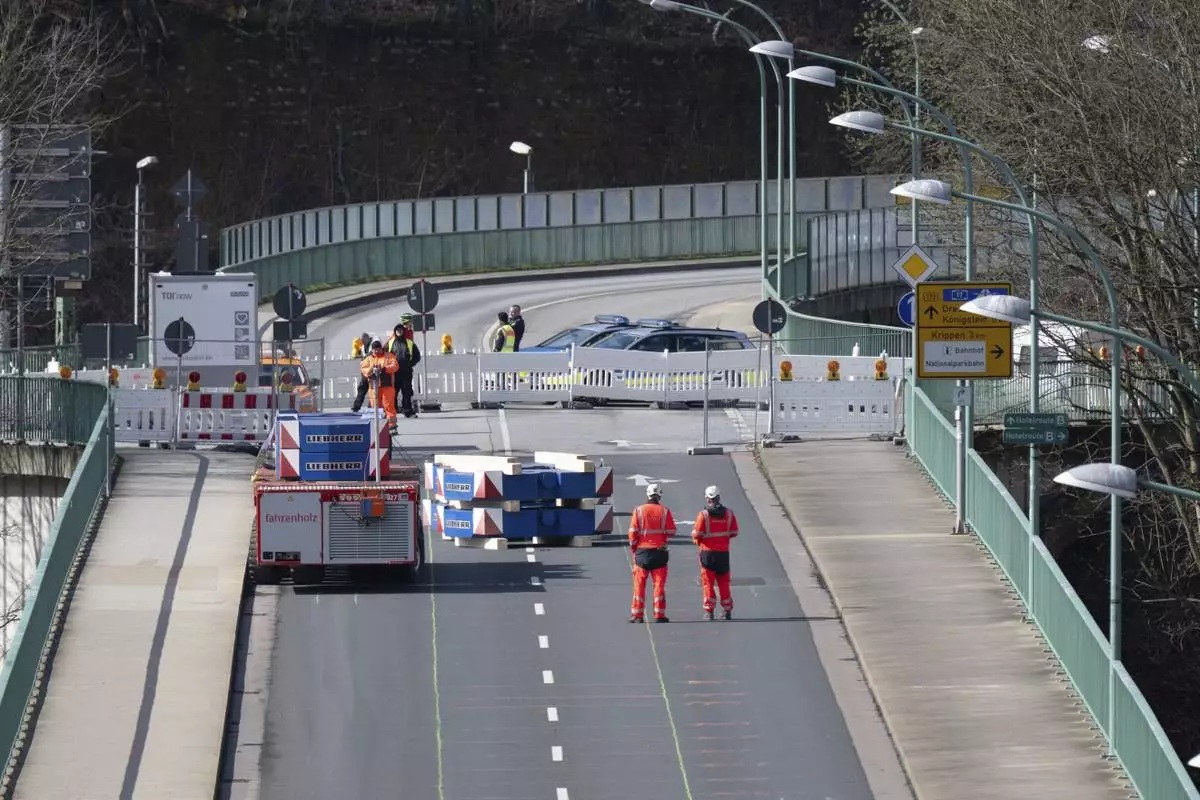
A heavy-duty module loaded with weights drives over the closed Elbe bridge as part of a three-day load test intended to show that the Elbe crossing can be reopened to traffic, in Bad Schandau, Germany, Tuesday April 1, 2025. (Sebastian Kahnert/dpa via AP)




